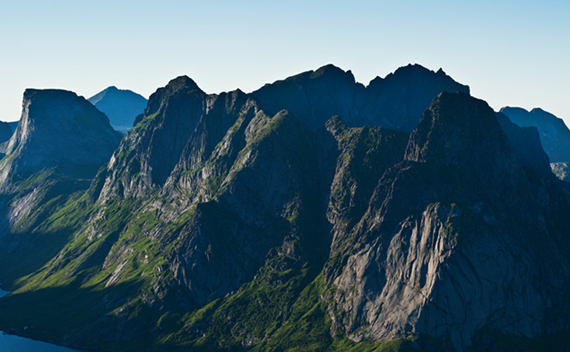Sea Change: Our Dying Oceans
More on:

--Svolvaer, Norway
The Internationalist is spending this week in the gorgeous Lofoten Islands of Norway, just below the Arctic Circle. As boondoggles go, this one is fairly legit. I’m attending a symposium sponsored by the Norwegian Nobel Institute on the changing nature of world politics since the end of the Cold War. In a subsequent post, I’ll blog on any brilliant insights that arise from the assembled scholars.
But since I’m sitting in a beautiful fishing village, it seems more urgent to draw readers’ attention to a looming ecological disaster with no known historical parallel: the impending death of the world’s oceans.
Earlier this week, a panel of twenty-seven marine scientists released a devastating report documenting in harrowing detail the dire state of the seas. Thanks to global warming, chemical pollution, rampant over-fishing, and ocean acidification (itself a byproduct of climate change), these experts now anticipate “an unprecedented loss of species comparable to the great mass extinctions of prehistory” (The Independent). Major extinctions will occur not only at the top of the food chain, among major predators like sharks and tuna, but at the very bottom, in the destruction of the world’s coral reefs—upon which millions of species depend, and which are already suffering from record “bleaching” events.
Some of these trends are already well documented—including in our own award-winning interactive Global Governance Monitor feature on the world’s Oceans. The new findings suggest that the cumulative effect of multiple destructive human activities are hastening the crisis of the oceans faster than expected—and will lead to major extinction events within a generation or two.
When he was running for president in 1992, former (and once again) governor Jerry Brown of California kept repeating a line that made him sound like an angry, environmentalist crank: “We’re turning this planet into a stinking junkyard!” But maybe he was just ahead of his time. Consider a huge ocean area called the North Pacific Gyre—greater than the size of Texas. There, tiny particles of plastic already outweigh life-giving plankton by a factor of six to one.
Why, a foreign policy traditionalist might ask, should we care about the oceans? In a fundamental sense, oceans are the source of life on earth, shaping our climate, providing sustenance, and cleansing the air we breathe. Fish are the main source of protein for a fifth of the world’s population, but FAO estimates that at least seventy-five percent of commercial species are overexploited, fully exploited, or precariously recovering from depletion. At a time of growing food insecurity, we cannot afford collapsing marine ecosystems, which will threaten a vital source of nutrition for more than a billion people. Maritime pollution, meanwhile, poses a growing threat to human health, as heavy metals, persistent organic pollutants (POPs), plastics, petroleum and pesticides, enter the global food chain. Thanks to global warming, finally, the oceans are now less effective at serving as “carbon sinks” than previously—portending accelerated climate change.
Unless current trends are reversed, humanity faces a self-inflicted calamity: the ruination of seventy-one percent of the earth’s surface. The degradation of the oceans is a classic instance of the “tragedy of the commons.” Reversing our current course will require unprecedented collective action from the world’s leaders.
More on:
 Online Store
Online Store
